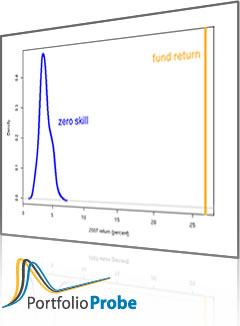Follow us using:
Newsletter Sign-up
Category Archives: Economics
Review of “Money, Blood and Revolution” by George Cooper
How Darwin and the doctor of King Charles I could turn economics into a science. Executive summary If you are confused by economics, then you should read this book. If you are not confused by economics, then you really, really need to read this book. The book is inexpensive, not very long, and it’s important … Continue reading
Review of “The Origin of Financial Crises” by George Cooper
The subtitle is “Central banks, credit bubbles and the efficient market fallacy”. Executive summary This is much too important of a book to remain as obscure as it is. Besides, it is quite a fun read. It talks about two subjects: Why markets for goods and services tend toward equilibrium but financial markets do not. … Continue reading
Two sentences from John Kay
A semantic confusion leads us to use the word market to describe both the process which puts food on our table and the activity of gambling in credit default swaps. Perhaps the “something nicer” which should replace capitalism is a more nuanced – and more accurate – account of capitalism itself. The sentences that surround … Continue reading
Posted in Economics
Leave a comment
Governors and stability
Last night at the Royal Institution’s 14-10 club George Cooper gave a talk based on his book The Origin of Financial Crises. One of the analogies was between James Clerk Maxwell’s analysis of governors in steam engines and the governors of central banks. Both types of governors have the task of bringing a system into … Continue reading
Posted in Economics
Leave a comment
Review of “23 Things They Don’t Tell You about Capitalism” by Ha-Joon Chang
Executive Summary Simple but not simplistic explanations of several big ideas in economics. Surprises Thing 4 The washing machine has changed the world more than the internet has. We are used to marvelling at the wonders of computing. However, we tend to forget that our lives would be extremely different without machines to do household … Continue reading
Posted in Book review, Economics
1 Comment
Sargent and Sims Nobel Prize
Thomas Sargent and Chris Sims won the 2011 Nobel Prize in economics. In a nutshell Sargent won for dynamic learning of economic agents and Sims won for championing vector autoregression and impulse response in econometrics. Already there has been a lot written, here are the items (in order) that I’ve found that I recommend: Tyler … Continue reading
The ecology of collateral haircuts
New Scientist has an editorial that points to “Complexity, Concentration and Contagion” out of the Bank of England. The paper describes some experiments with a network calibrated to look like the UK banking sector. The experiments are trying to determine the effect of haircuts on collateral for interbank loans. Subscribe to the Portfolio Probe blog … Continue reading
Posted in Economics
Leave a comment
Inflexible regime, inflexible prices
There is a deep connection between political mechanisms and economic mechanisms, at least according to Ajay Shah. Price flexibility Ajay Shah has a post called Jittery regimes fix prices. It is well worth reading the whole piece (which isn’t very long anyway). Here’s an excerpt: Flexible prices are constantly disruptive. Every day, there are a … Continue reading
Posted in Economics, Fund management in general, Quant finance
1 Comment
Financial instability
Instability in the economy seems to be the zeitgeist of the week. Counter-intuitives Science Daily has a story on a mathematical model of extinction. Apparently a key finding is that the most effective interventions in the model when a species declines are counter-intuitive. An analogy: brakes don’t stop you when you are driving in snow, … Continue reading
In the blogosphere this week: sunshine and Vegas
Gambling Falkenblog has a post called: Why Do People Gamble? This includes the often-stated “problem” that the same people both: pay for insurance pay to gamble Maybe I’m being thick, but I don’t see any problem. I see both these activities as buying positive skewness: paying a little now for an uncertain but big positive … Continue reading
